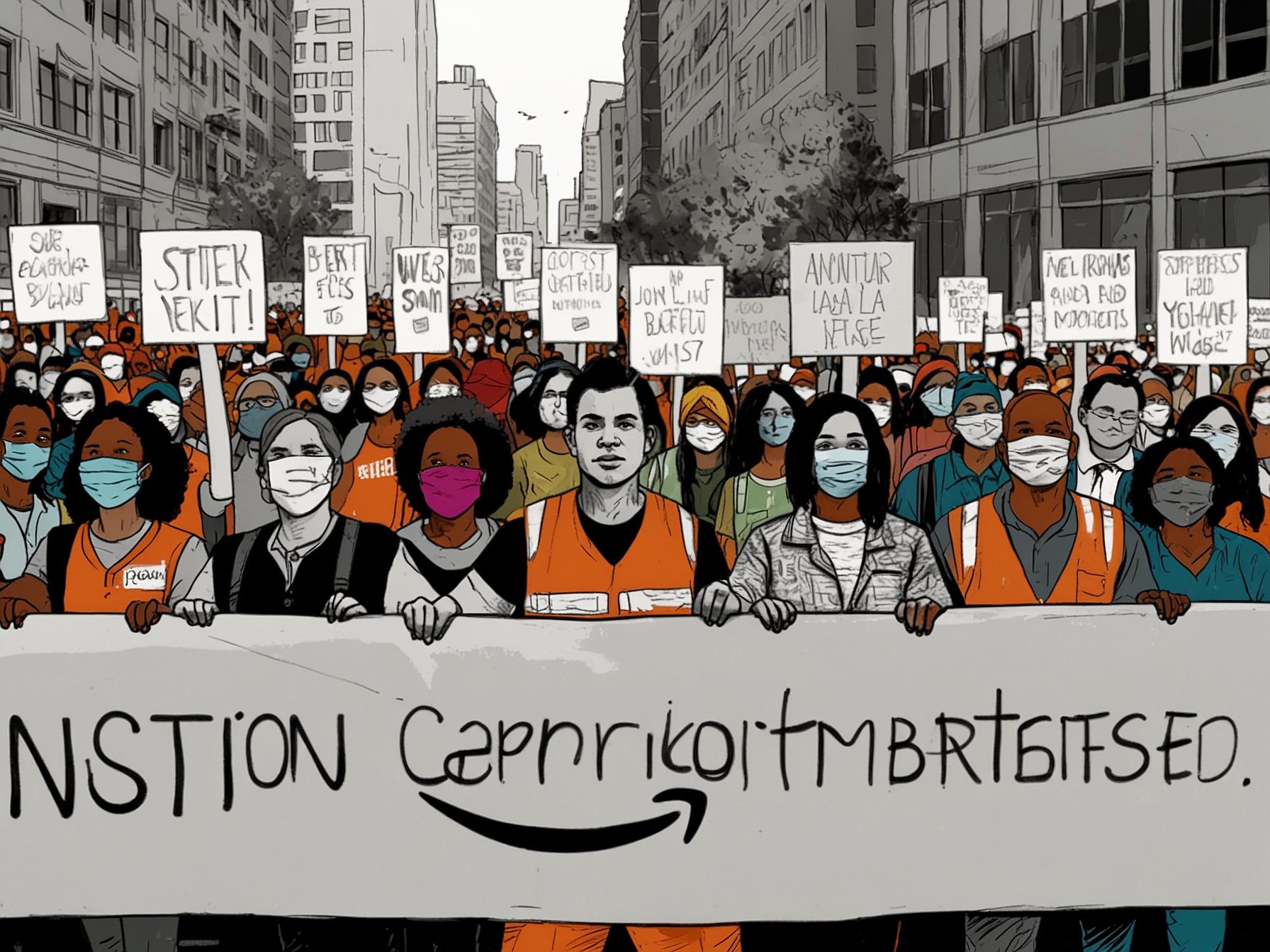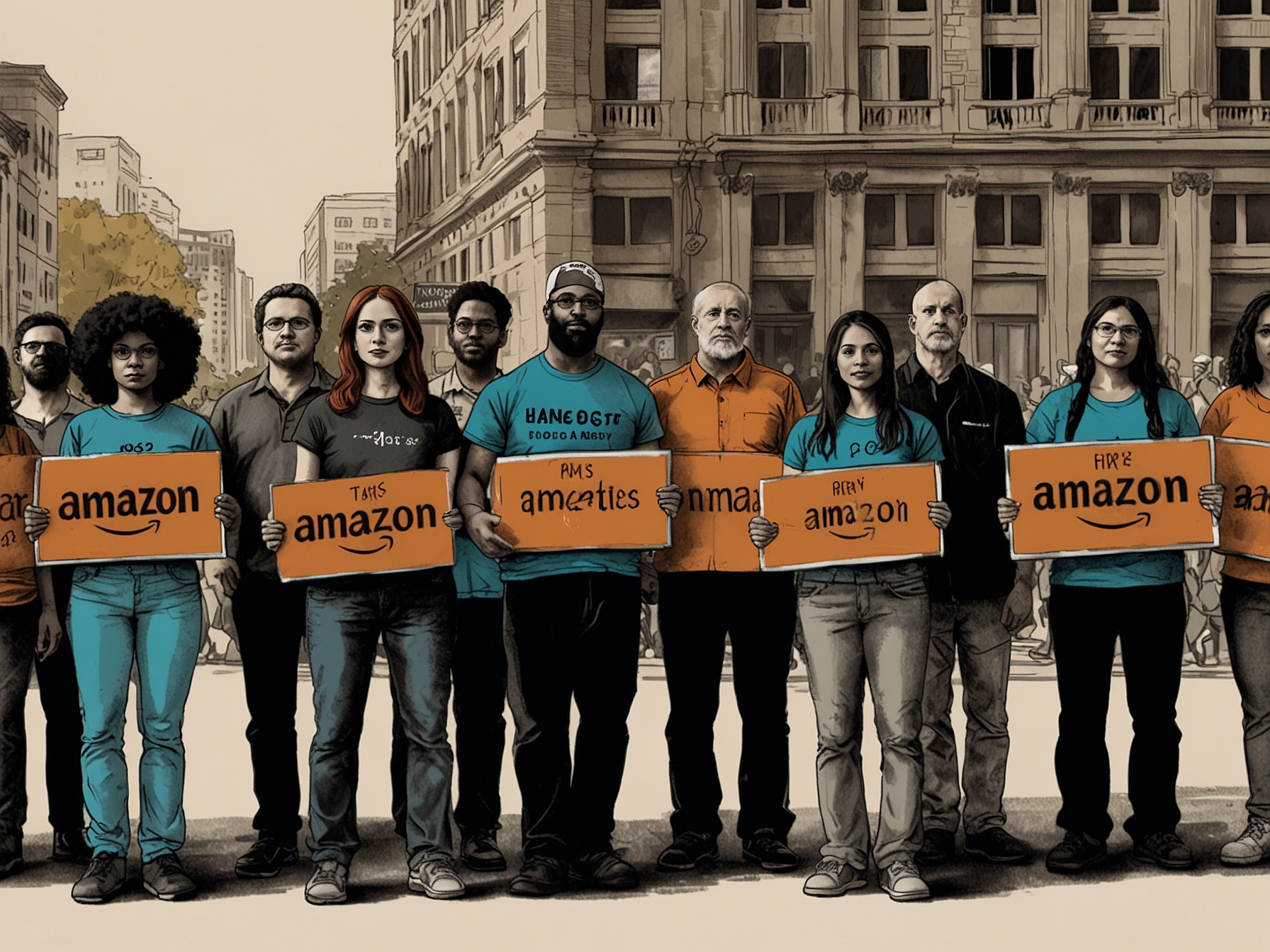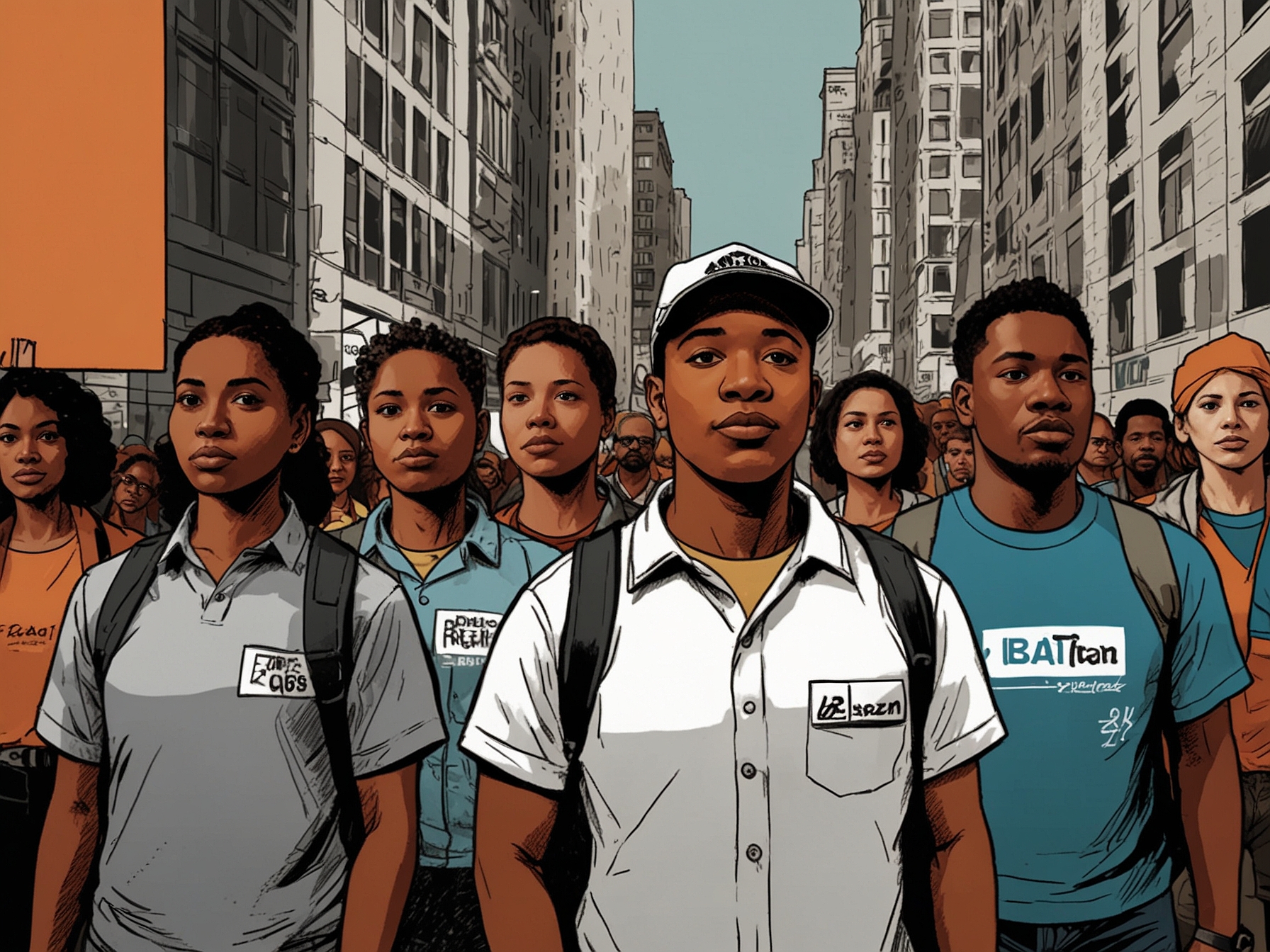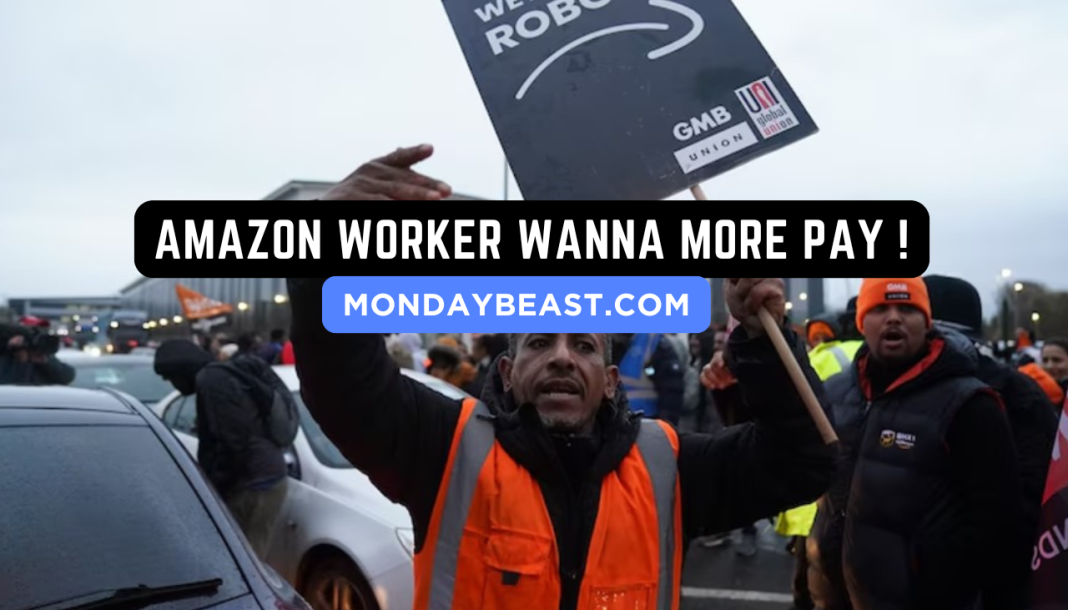Amazon workers are striking from Black Friday to Cyber Monday across the globe. This wave of demonstrations highlights a growing frustration among employees. They are demanding better wages and union representation.

Christy Hoffman of UNI Global Union argues that, despite Amazon’s significant financial resources, the company cannot suppress the call for worker justice. Employees are united in their demand for fair treatment and respect for their rights. These protests reflect a broader desire for change within the corporate giant.
Eileen Hards, an Amazon spokesperson, counters these claims. She insists that Amazon offers competitive pay, benefits, and opportunities. She points to the creation of 1.5 million jobs as evidence of their commitment to employees. Yet, striking workers tell a different story, one that reveals deeper issues.

The protests are not limited to a single country. Demonstrations are planned in major cities across the U.S., Germany, the U.K., Japan, and Brazil. Workers from various backgrounds are coming together to voice their concerns. Despite the geographical distance, their struggles are connected by a common cause: fairness in the workplace.
Is this just an isolated incident? Or a sign of a larger movement? The reality is complex. Many workers feel trapped by the demands of their jobs, leading them to demand change. They want their voices to be heard in the corporate corridors of power.

There is a growing recognition of the need for unions in corporations like Amazon. Many workers today believe that union representation can lead to improved working conditions. The battle for worker rights is a story worth telling, one that could redefine the landscape of corporate America forever.
So, what does this mean for the future of employment and workers’ rights? The answer lies in the response from corporations. Will they listen to their employees, or will they continue to prioritize profits over people? Only time will tell, but the implications of these actions are profound.




